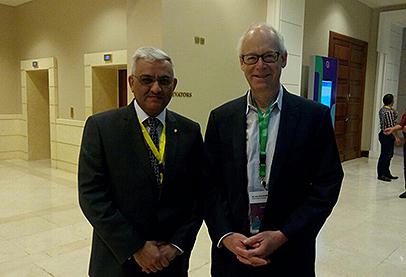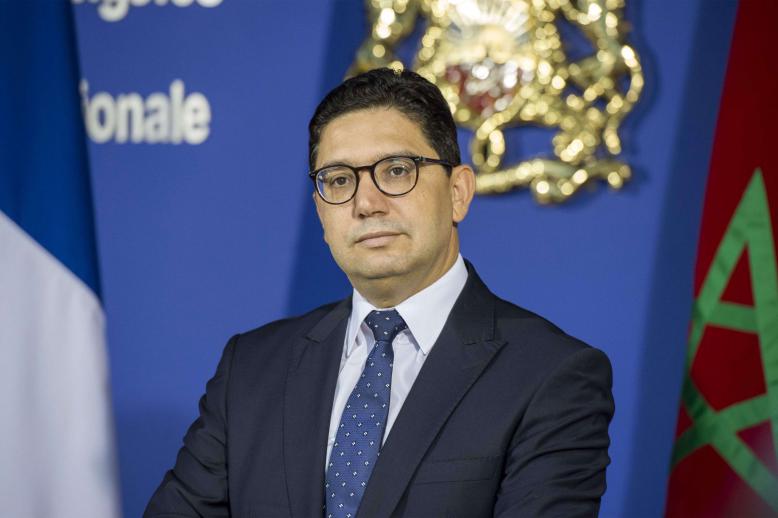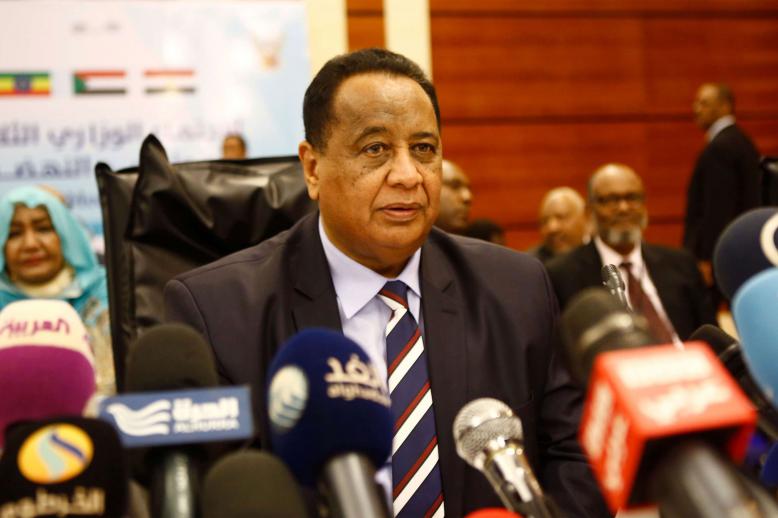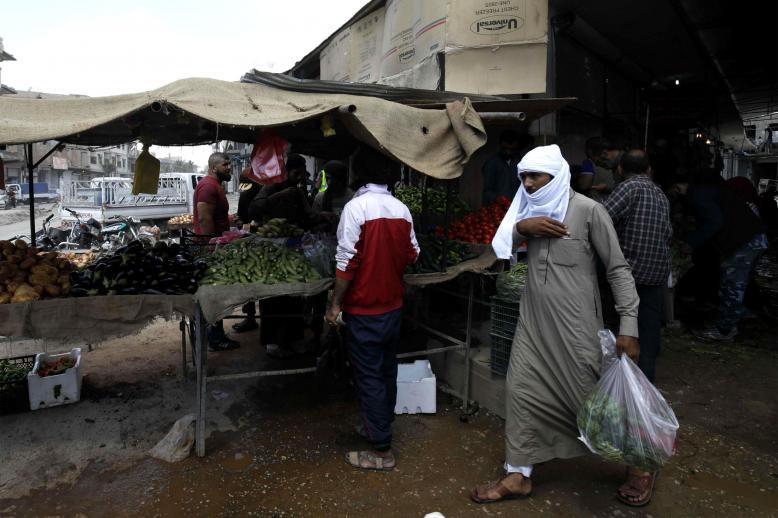Forum in Jordan explores new teaching techniques

The fourth Teacher Skills Forum in Jordan updated educators on tools and advanced practices, other than grading, to improve the quality of teaching and prepare the next generation for a better future.
An estimated 1,300 teachers and education experts representing 210 public and private schools and education establishments from 23 countries participated in the 2-day forum organised by the Queen Rania Teacher Academy and the International Baccalaureate under the theme of “Growth beyond Grades.”
Alan November, an expert in education technology and co-founder of the Stanford Institute for Educational Leadership through Technology, stressed the importance of sharing ideas from around the world.
“We need to be global and, as I can see, there is a lot of interaction here in this friendly event. The workshops are excellent but you can get them online. What you don’t get is the human interaction and this is important in such events,” he said.
“The level of education here is high and I have met students who are as good as any students I met in the world, as such I have asked them to come to my workshop and share their ideas.”
Defining effective learning, the role of pedagogical leadership teams in supporting learning and prioritising disciplines in addition to mathematics and the sciences from an early age were some of the subjects addressed at the forum.
Yousef al-Rawas, representing Talal Abu-Ghazaleh Academy, said the forum created excellent opportunities for people in the educational sector.
“It is a most convenient platform to develop and experience new ways to handle what is needed in a classroom. This year’s theme explored a better future for both students and teachers as it asked educators to look beyond grading and prepare students for the 21st century,” Rawas said.
“At the Talal Abu-Ghazaleh Academy, we have been focusing on enriching and strengthening the skills of the youth and professionals in various fields through paving the way for many to acquire the needed certifications because we strongly believe that not just education but higher education is a right for all,” he added.
Haifa Akroush, a private school teacher in Amman, stressed the need to keep up with technology in teaching methods and to explore the capacities of individual students and help develop them.
“We, as teachers, need to pay more attention to students’ abilities and curiosity. Not all students will become engineers or doctors. Some may be hooked on creating new recipes and want to be cooks, for example,” Akroush said. “This can be done in the early (academic) years and the job of a teacher is to identify areas where the student needs support.
“Also, times are changing and technology is taking over so teachers need to focus more on using technology in the classroom. We need our schools to adapt to the high-tech generation and provide the space for their innovative mind to flourish and this can only be done if we change.”
We’am Hamdan, an English language teacher at the British Council in the Palestinian territories, spoke of the use of drama techniques in teaching languages.
He said teachers should help students “find their natural language,” which they can develop through various ways such as watching movies or listening to music in whichever language comes to them naturally.
“Educators should help students find the gaps in their language learning. For example, a teacher reads a text and gives key words asking students to reconstruct the text from memory and to agree on one version. This method is called noticing the gap in which students discover the gaps in their own version compared to the original,” Hamdan said.
Tina Blythe, a lecturer on education and project director at Harvard Project Zero, focused on guided conversation as a tool to enhance learning in class.
Jordan had nearly 3,800 public schools with 79,079 teachers and 3,055 private establishments with 35,495 teachers in the 2015-16 academic year, the Ministry of Education said. This compared to 3,716 public schools with 78,739 teachers and 2,763 private schools with 31,181 teachers in 2014-15.
Educators from international and regional establishments, including the University of Connecticut, University of Bath, Education Development Trust, Jordan Media Institute, British Council, Insight Education Group and the National Centre for Culture and Arts-Jordan, participated in the event’s 128 workshops.
“It was actually a great and successful event. The sessions were varied. New ideas were put on the table and it allowed teachers from different regions to meet and share their experiences,” Ishraqh Shaaban, a teacher at Egypt’s El Nasr Girls’ College, said on social media.
Roufan Nahhas, based in Jordan, has been covering cultural issues in Jordan for more than two decades.
This article was originally published in The Arab Weekly.




